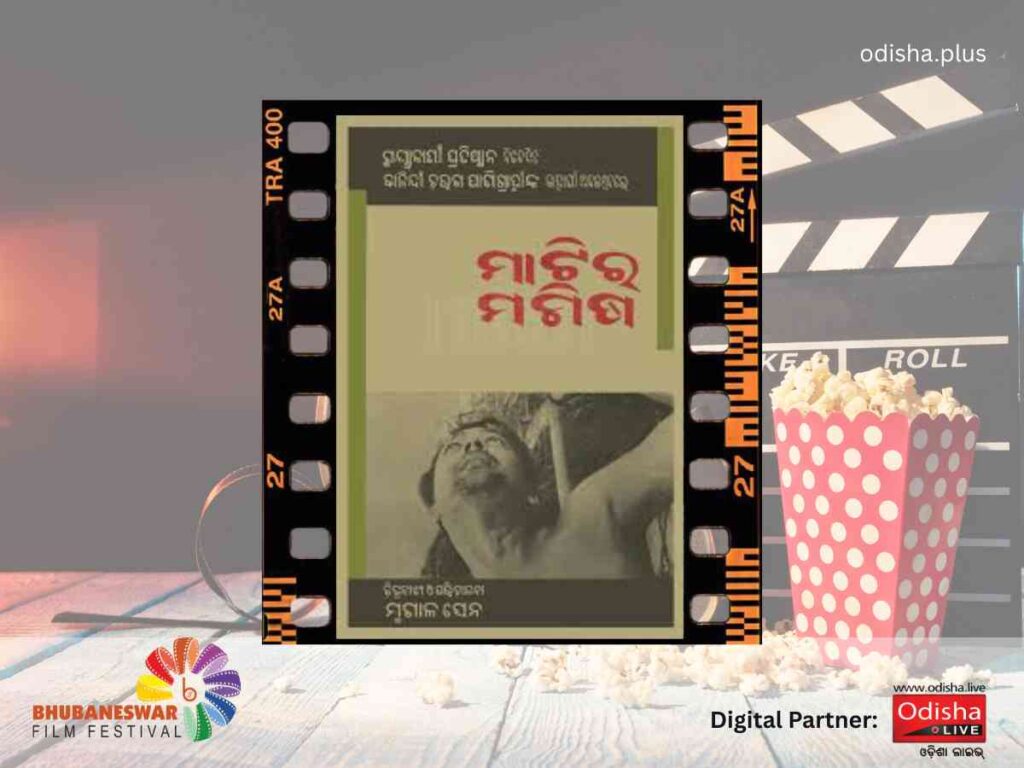Matira Manisha timelessly explores land ownership, duty vs. ambition and silent endurance through two brothers, urging self-sacrifice for a peaceful future
Isha Isita

In this age of cosmopolitan nation-states willing to wage nuclear wars over a lost or claimed territory, one asks a very elemental but a very disturbing question what exactly is the value of the land? And who is the rightful owner of it? Those power structures let it be states or individuals who are willing to sacrifice every living soul to attain a deserted, barren, wrecked piece of land? Or those who by their sweat, blood and tears anoint it as a sacred altar to Nature and who understand the land they tend to so devotedly to is never theirs to keep or kill but of the Earth from whom it has arisen, in whom it will finally merge? There are never easy answers for this question as human beings continue to wreck the world and themselves over possession but perhaps there can be directions on where to find an inkling of a solution to this existential problem.
Kalindi Charan Panigrahi’s Matira Manisha (1931) which has been excellently adapted by the Bengali maestro, Mrinal Sen to Odia celluloid in 1966 is one such flickering light on the long way which asks disturbing questions and provides equally disturbing answers. Using the ancient mold of two brothers in conflict facing each other the novelist weaves around them the complex web of the constant fight over the right ideal, the tussle between diverging way of lives and in the end leaves its characters and its audience with an empty cry for there is never a winner, there seems to be never an answer to such a question.
Panigrahi’s disturbing novel was already a classic in its own right. When producer Babulal Doshi appealed to the maestro for its film rights, he agreed to it with the condition that directors capable of executing its vision like Satyajit Ray or Mrinal Sen lend their hand to helm the project. And this was how a master in cinematic vision made to pay tribute to a master of literary acumen who himself through his novel was paying a tribute to the Gandhian philosophy and through it to the ancient Indian value system. And the result was a tense, poignant and heartfelt poem of sorrow to the Earth and the dying value of virtue, a style of filmmaking never again attempted by Odia filmmakers.
The story revolves around two brothers who have widely differing lens to look at life and different ways to enliven it: Baraju (Sarat Pujari), the elder son who is the quiet dutiful elder who spends his life in selfless toil to the family, the land and the ideals he upholds and Chakadi (Prashanta Nanda) who is a wild, carefree spirit with no fixed will or ideal of his own (interestingly, both of them also have exact alter egos as their spouses – the elder son’s wife Harabou (Bhanumati Devi) is the image of an affectionate Odia ideal wife who is equally devoted to her family and ideals as her husband, while Netramani(Sujata Anand), Chakadi’s wife, is as willful and frivolous as him).
The willful couple falling prey to their own intrusive greed, jealousy, ambition and to the evil mechanizations of the village troublemaker Hari Mishra (played by Dukhiram Swain, this character is a representation of the exploiting power holders who benefit from internal discord and who perhaps are the only winners in these conflicts) demand that the elder son divides the ancestral land equally between them leaving him in a moral struggle between honoring his dead father’s last wish of keeping the land intact and of yielding to the ambitious thoughts of his loved younger brother.
The answer he finds to this is startling, painful but perhaps at times the only solution to wrecking conflicts where to win all is to lose all, so he leaves home and hearth untouched undivided to his ambitious brother and walks away to the silence of labor, from which when summoned by the repentant brother’s guilt he responds with a sermon of love, forgiveness and duty telling the world that the answer to ambition’s rage is at times the silent endurance of love.
Mrinal Sen in his compact vision has succeeded in capturing the rural, post–war scene of Odisha where families were breaking and landed property was soon transitioning from the sacredness attached to agricultural duty to the commercialization of using it as just an economic asset. The rural village with its conflicting men, loyal farmers, suffering-scheming wives and opportunistic trouble makers come alive on screen with each character feeling near to the village life that Odias had lived in patience since ages.
But the most important distinctiveness that the creator has given to the screen adaptation of the novel is the voice that he provides to the land through his able direction and Gopal Chhotray’s exemplar screenplay: the land seems to speak through waving rice stalks when it is in happy hands and mourning the loss of its master as he trudges his way away from home through it by bending its stalks to his fading footsteps as if wanting to leave with him. Added to that is the haunting soundtrack of Rama Gale Vanvasa (sung soulfully by Akshaya Mohanty) which traces the movie’s message of silent endurance to the ancient suffering hero of the Indian epic tradition and central figure of the Gandhian philosophical school.
ALSO READ: Bland Stories, Bleeding Industry-What Ails the Odia Film Industry
Matira Manisha places before us a very poignant and still indispensable question about the ownership of land, the tussle between duty and ambition, the silent conquering power of endurance and love,and many more hidden in its tear-stained pages and reels. In its ending one finds the echo of Gandhi’s alarm call – “if thirty crores people of India turn consumerist, the world will be consumed in a minute.”
But the answer it provides is an equally disturbing question, but perhaps in the battle between ideals there is no fixed solution,one must walk on like Baraju trying at every step to take the best possible way forward to a peaceful, sustainable future but still there shall be no guarantee of peace without the sacrifice of oneself and that is why it is essential we laud Bhubaneswar Film Festival’s initiative to screen films like ‘Matira Manisha’ which do not shy away from asking disturbing questions.
(The author, a student of English Literature at Christ University, Bengaluru is currently an intern with Bhubaneswar Film Circle. Views are personal.)

























